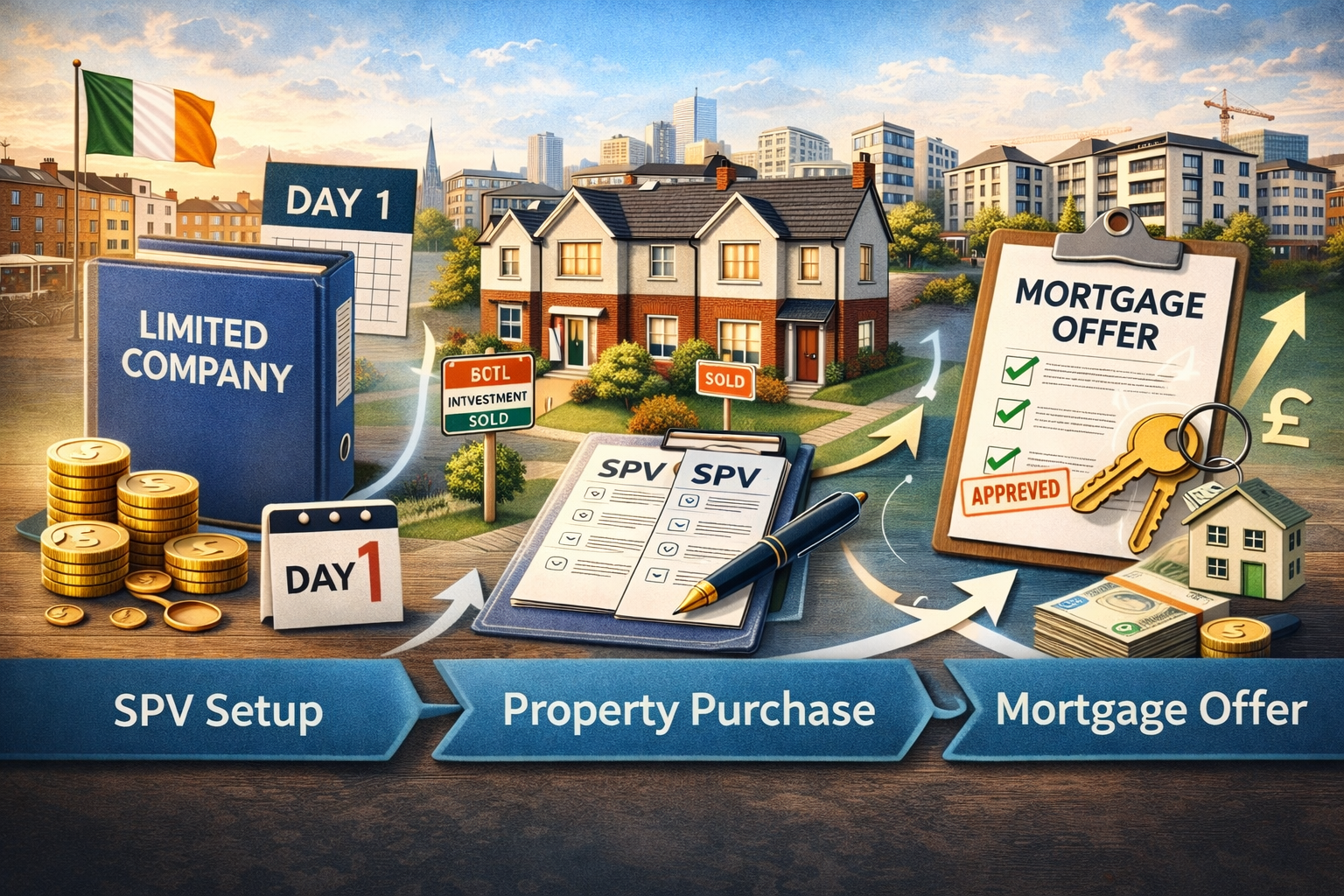Have you ever wondered about the old pension benefits and how they worked? Defined Benefit Pensions have long been a cornerstone of Irish pension schemes, providing retirees with financial security for years.
Join us as we delve into the intricacies of Previous Defined Benefit Pension in Ireland and explore its evolution, advantages, and tips for maximizing your money. Whether you’re a pension pro or just starting to plan for the future, this blog has something for everyone!
Understanding Defined Benefit Pensions in Ireland
Defined Benefit Pensions are retirement plans where the employer guarantees a specified pension amount to employees upon retirement. In Ireland, these pensions have been a crucial part of the retirement landscape for many years. The benefit is usually calculated based on factors like salary and years of service. Unlike Defined Contribution Plans, which depend on investment returns, Defined Benefit Pensions offer a more predictable income stream during retirement.
Employees can rest assured knowing that their pension payout is predetermined by their employment terms. However, changes in life expectancy and economic conditions have led to shifts in how these pensions are managed and funded over time.
Understanding the ins and outs of Previous Defined Benefit Pensions is essential for anyone planning for retirement in Ireland.
Old Pension Benefit: How it Worked
Defined Benefit Pensions have been a cornerstone of retirement planning in Ireland for many years. The old pension benefit under this scheme operated on a simple premise: the employer guaranteed a specific level of income to the employee upon retirement based on factors like salary and length of service.
Employees could rely on a predictable stream of income during their retirement years, providing financial security and peace of mind. The calculation usually involved multiplying final salary by the number of years worked, with adjustments made for inflation and other variables.
These pensions were seen as valuable perks that attracted top talent to companies and fostered loyalty among employees. However, with changing economic landscapes and longer life expectancies, many employers have shifted away from offering defined benefit pensions in favor of more flexible options like defined contribution plans.
Despite the decline in popularity, some older workers still enjoy the benefits of these traditional pension schemes. Understanding how they worked can shed light on why they were once highly sought after by employees seeking long-term financial stability.
Changes to the Irish Pension System
The Irish pension system has undergone significant changes in recent years. With the shift from defined benefit to defined contribution schemes, individuals are now shouldering more responsibility for their retirement savings. This change has brought about a greater emphasis on personal contributions and investment choices.
Additionally, there have been reforms aimed at increasing transparency and governance within pension funds. Regulations have been implemented to protect members’ interests and ensure that pension schemes are managed prudently.
Furthermore, the introduction of auto-enrolment initiatives is encouraging more people to save for retirement by automatically enrolling them into workplace pension schemes. These changes seek to address the challenges posed by an aging population and evolving economic conditions.
The evolving landscape of the Irish pension system reflects a growing awareness of the need for individuals to actively plan and save for their retirement years.
Advantages and Disadvantages of Defined Benefit Pensions
Defined benefit pensions offer a sense of security by providing a guaranteed income in retirement, based on your final salary and years of service. This can alleviate the worry of outliving your savings. Moreover, these pensions are typically funded by the employer, lightening the financial burden on employees.
On the flip side, with defined benefit pensions, there is little control over how funds are invested since it’s managed by the pension scheme trustees. Additionally, if you change jobs frequently or leave before reaching retirement age, you might not fully benefit from this type of pension as it’s usually tied to long-term employment.
Understanding both the advantages and disadvantages of defined benefit pensions can help individuals make informed decisions about their retirement planning strategies.
Tips for Managing Your Defined Benefit Pension
When it comes to managing your Defined Benefit Pension in Ireland, staying informed is key. Keep track of any updates or changes to the pension system that may impact your benefits.
- Consider speaking with a financial advisor who specializes in retirement savings schemes to help you make informed decisions about your pension plan. They can provide valuable insights and guidance tailored to your specific situation.
- Review your pension statements regularly to ensure accuracy and monitor the performance of your investments. Understanding where your money is allocated can help you maximize returns and secure a comfortable retirement.
- Explore the option of diversifying your retirement savings beyond just relying on a Defined Benefit Pension. Consider contributing to additional savings vehicles like personal pensions or investment accounts for added security.
- Stay proactive in managing your pension by regularly reassessing and adjusting your financial goals as needed. Being flexible and adaptable can help you navigate any changes in the Irish pension landscape effectively.
Future of Defined Benefit Pensions in Ireland
The future of Defined Benefit Pensions in Ireland is a topic that has been under scrutiny in recent years. With the changing landscape of retirement savings schemes and pension liabilities in Ireland, there have been discussions about the sustainability of Irish pension schemes.
As companies face increasing pressure to manage their pension entitlements, many are shifting towards alternative retirement benefits in Ireland. This shift raises questions about the long-term viability of traditional Defined Benefit Plans.
While some argue that Defined Benefit Pensions provide essential security for retirees, others question their financial feasibility in today’s dynamic market environment. As Money Maximising Advisors continue to assess the pros and cons of these plans, it remains to be seen how they will evolve to meet the needs of future generations.
Adapting to new economic realities and demographic trends will be crucial for ensuring the effectiveness and relevance of Defined Benefit Pensions moving forward. Stay tuned as developments unfold within the Irish pension landscape.
FAQs About Defined Benefit Pension
What is a defined benefit pension?
A defined benefit pension is a retirement savings scheme where the benefits are based on a formula that considers factors such as salary and years of service.
How does it differ from other pension schemes?
Unlike defined contribution plans, which depend on contributions and investment returns, defined benefit pensions guarantee a specific payout at retirement.
Are there risks associated with defined benefit pensions?
While these schemes provide secure income in retirement, they also come with potential funding challenges for employers who must meet their pension liabilities.
Can I transfer my defined benefit pension to another scheme?
Transferring your pension can be complex and may not always be beneficial. It’s essential to seek advice from professionals before making any decisions.
What happens if my employer goes bankrupt?
In the unfortunate event of your employer becoming insolvent, the Pension Protection Fund (PPF) in Ireland may step in to safeguard your benefits up to certain limits.
Conclusion
In navigating the world of retirement savings schemes in Ireland, understanding the ins and outs of defined benefit pensions is crucial. The old pension benefit structure provided a stable income for retirees based on years of service and final salary. However, changes to the Irish pension system have shifted the landscape towards defined contribution plans.
While defined benefit pensions offer security and guaranteed income, they also come with complexities and risks for employers managing pension liabilities in Ireland. As you consider your options for retirement benefits in Ireland, it’s essential to weigh the advantages and disadvantages of defined benefit plans carefully.
To effectively manage your defined benefit pension, seek advice from reputable financial advisors like Money Maximising Advisors who can help optimize your pension entitlements while considering alternative retirement planning strategies.
As Irish pension schemes evolve, staying informed about the future of defined benefit pensions in Ireland will be key to making sound financial decisions that align with your retirement goals. Whether you stick with a traditional defined benefit plan or explore other options, proactive planning is critical to secure your financial future post-retirement.
Talk to us at +353 91 393 125
Mail us at office@mmadvisors.ie
Visit our office at Unit 3, Office 6, Liosban Business Park, Tuam Rd, Galway, Ireland
Related Terms- Previous Defined Benefit Pension in Ireland: What is a Defined Contribution Pension Ireland?










